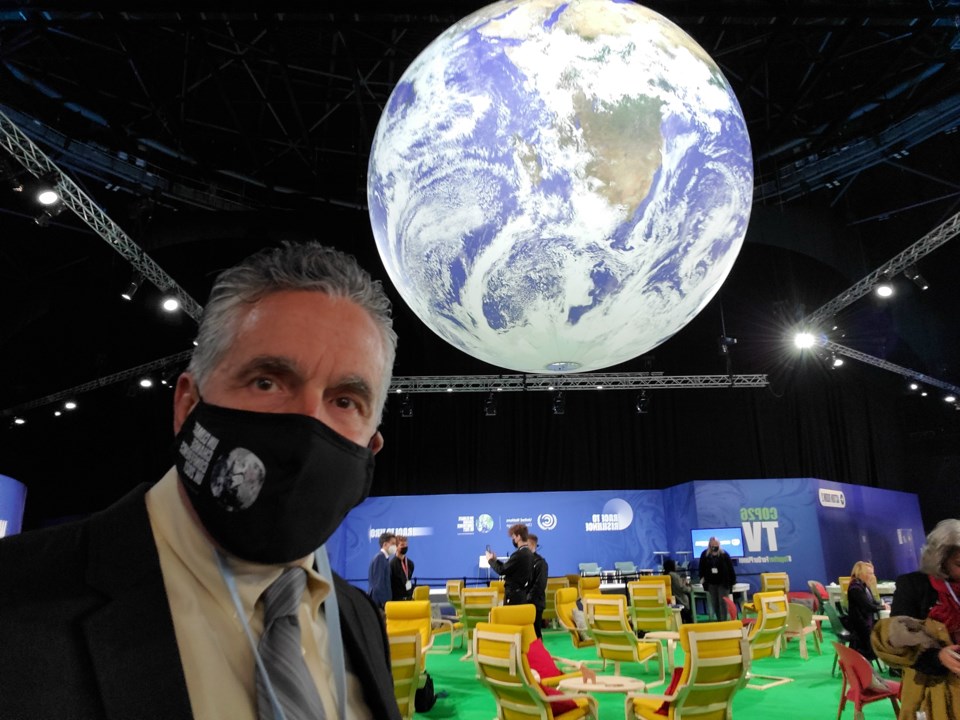Bowen Island resident Charles McNeill’s work with the United Nations began at the Rio Earth Summit in 1992 where the Biodiversity and Climate Change Conventions were established. Since then, his work has focused on fulfilling the mandate of these two conventions.
Charles attributes the trajectory of his life – a life that includes international conferences and travels to places as varied as Brasilia and Jakarta – to his preschool visits at his grandparents’ home on Bowen. It was on Bowen that he became captivated by the abundance of the natural world in the forests and oceans.
It was here too that, as he got older, he heard his grandfather’s stories of his work in the League of Nations (precursor of the United Nations), and caught a glimpse of possibilities for a better, more peaceful, more equitable world that inspired his own career. Charles’ enthusiasm for nature and Bowen Island is still evident in his conversation.
He talks excitedly about the view from his home on Bowen where, just the other day, he saw 12 sea lions fishing, along with cormorants, goldeneyes, and five young, swooping eagles joined by an adult eagle. “It was a dance of nature. A drama that could be put to music.”
Within his position with the United Nations, Charles is enthusiastic about his current work overseeing the Interfaith Rainforest Initiative. In the five countries holding 70% of all remaining tropical forests (Brazil, Colombia, Peru, Indonesia, and Democratic Republic of the Congo) this initiative brings together the powerful influence of religious leaders across faiths to work with Indigenous Peoples, governments, and civil society to protect both the forests and their guardians.
“Rainforests sustain all life on the planet, and the need to save them is one thing all the religious leaders agree on,” Charles explains.
Charles is passionate about the need to protect biodiversity, whether it is tropical forests in the Democratic Republic of the Congo, or natural areas in Canada. “We are currently witnessing the greatest species extinction since the end of the dinosaur era and the first one caused by humans. About one million species of the estimated eight million on the planet are threatened with extinction,” he says.
The climate crisis is equally serious, and he compares the situation to “a supersonic plane headed straight towards a mountain at 500 miles an hour, and the question is, can we as a species, as a civilization, pull up in time to avoid crashing.”
Despite that terrifying image, Charles is far from being a messenger of doom. “Some severe consequences to our lives and livelihoods are already built in at this point from climate impacts and biodiversity loss. But if we get focused and into action, we can have a future as a species, and a decent one, if not the one we could have had if we had taken action 30 years ago.”
Lots of opportunity to turn things around
He sees cause for optimism in the recent global conferences he attended, such as the UN’s December 2022 Biodiversity Conference (COP15) in Montreal. He witnessed an “explosion” of energy, resources, new technologies and commitment forming “dynamic, improbable partnerships among unlikely bedfellows to find creative solutions.”
Charles has also seen nations galvanized into commitments to preserve biodiversity and address climate change. “For example,” he says, “thanks to Canada’s leadership in COP15, every country in the world agreed to protect 30% of land and oceans by 2030.”

For Charles, an exciting and hopeful aspect of these new international commitments is that they can translate into calls for action at regional and local levels. In B.C. and here on Bowen, “We need to step up to meet the 30% goal,” he says. “Right now on Bowen, 18.7% of land is protected, and if the park at the Cape is added, another 1.9% will be protected from development. This puts us within striking distance of the 30% by 2030 goal.”
Charles emphasizes that one critical, but underappreciated fact is that “there is no way to avoid catastrophic climate change or to stop the sixth great extinction of species without transforming how we produce and consume food – changing to regenerative agriculture, reducing food waste, and eating more plants. This transformation will not only unleash enormous dividends for the health of people and the planet, it can also generate peace and stability and shared prosperity.”
In his talk, Charles will offer an update on the outcomes of the recent Biodiversity Conference (COP15), the Climate Conference (COP27), and the dramatic findings of the just-published final report of the Intergovernmental Panel on Climate Change (IPCC). These give Charles confidence that although “the window to address the climate crisis is rapidly closing, it still is possible to secure a safe, livable future – if we take the right kinds of action right now.”
Join Charles on Saturday, April 29 at 2 pm at the Bowen Library to catch some of his passion, enthusiasm, and optimism for the way forward. Charles’ talk, “Climate Change, Biodiversity, and the Future of Food: A Global Perspective to Inform Local Action,” is jointly presented by the Bowen Island Public Library and Bowen Island Food Resilience Society.
If you’d like to know a bit more about Charles and his work, you can go to the Bowen Library’s calendar event at bipl.link/earth, click on his talk, and there you’ll find more information, a bio, and a link to Charles’ CV.
.png;w=960)


